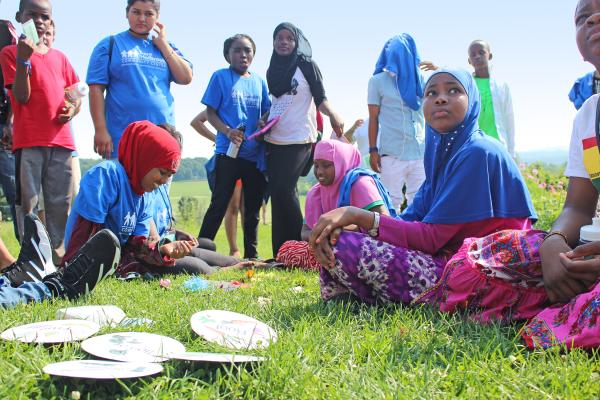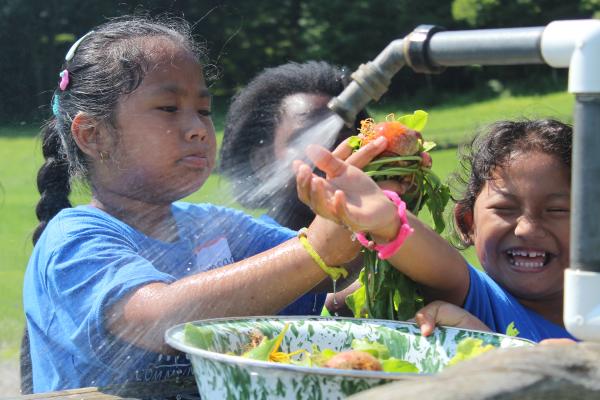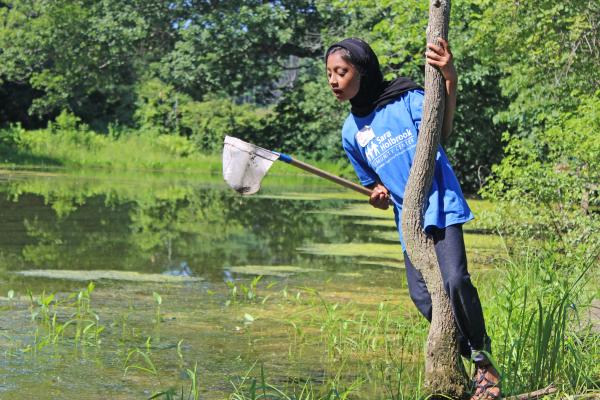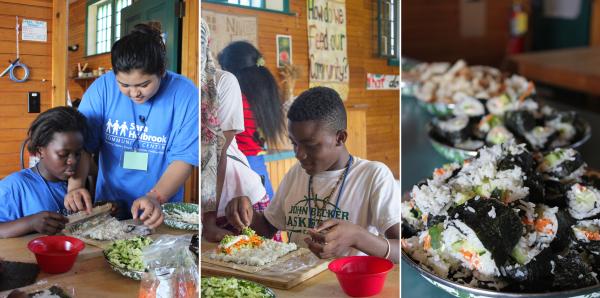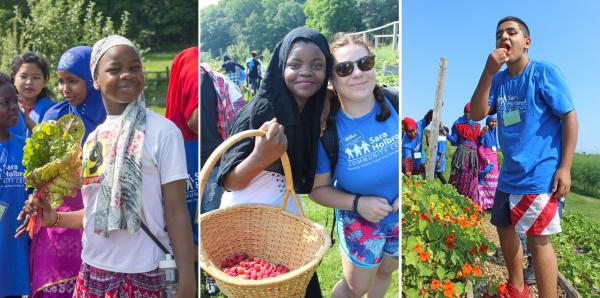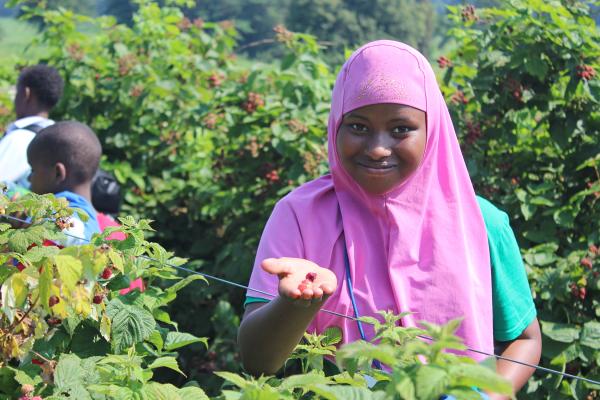A great post. It is terrific SF is taking a leadership role in helping the refugees orient themselves to the new world they have come to in Vermont.
For more than a decade, we’ve welcomed refugee and immigrant children from Sara Holbrook New Arrivals Camp for some summer days at the Farm.
Our partnership has grown over the years, and for the first time this summer, they came for a full week of camp. It was a special week for everyone -- kids and staff alike -- and for a lot of reasons.
The focus of the New Arrivals Camp is on learning English. For any child, hard-earned academic skills can slide over the summer months. For new Americans hailing from countries all around the world, a backslide in English poses special challenges. The Farm can help solidify and expand those language skills.“Farming is something that we can all relate to,” explains Anna Viets, instructor for Grades 3-4 campers, “These students are all at such different levels of language proficiency, but for English language learners, it is so important to find common ground that can activate prior knowledge to form the basis for new learning.”
Farming is that common ground.
Kevin Cross, instructor for teens in the camp, puts it this way: “These [farm] experiences bring up new vocabulary or language that is meaningful to students because it is anchored in something that they have seen, touched, or done. They have new experiences that they can connect to previous, or future, learning.”Some of that learning simply gets them used to their new home -- Vermont. That might include understanding the region’s four distinct seasons, Vermont’s tradition of maple sugaring, or knowing that red raspberries ripen in July! “Opportunities like our visits to Shelburne Farms give them some historical and cultural perspective about their new home,” says Anna.
Whatever they are learning, their experiences here are hands-on. It’s what the Farm does best (and a farm offers endless possibilities for it). Hands-on learning is a great equalizer among these children. No matter what your background or language skills, anyone can pull a pea or an onion from the garden, or capture pond critters with a net, or milk a cow.We are honored to support the work of the Sara Holbrook Community Center, and to play a small role in the lives of these children.

